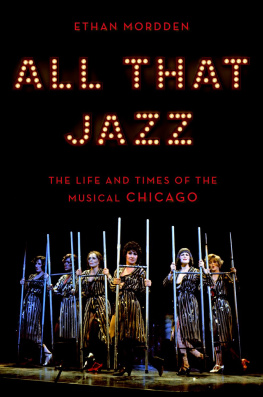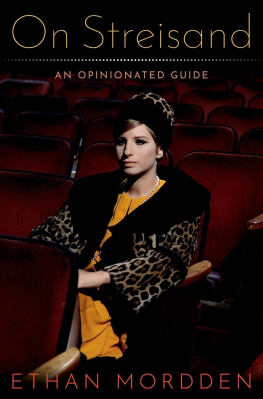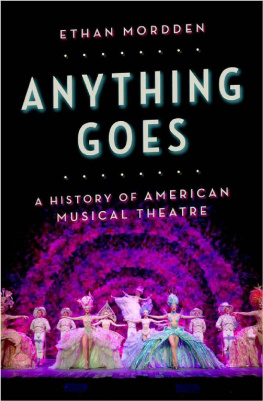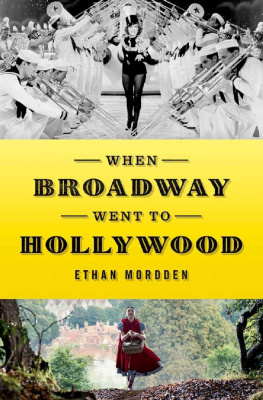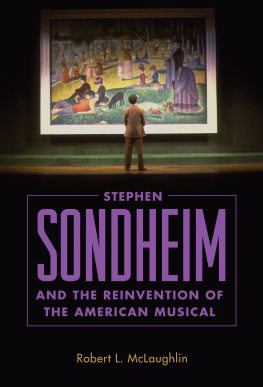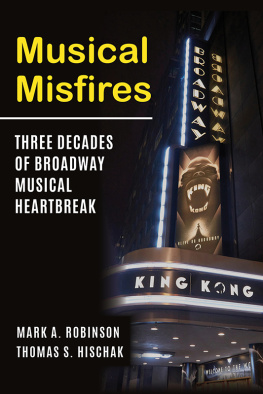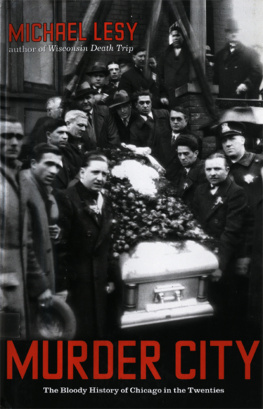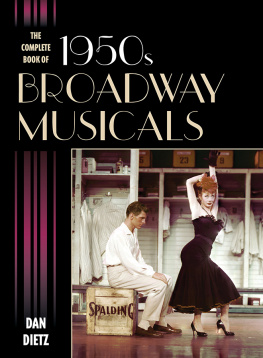All That Jazz

Oxford University Press is a department of the University of Oxford. It furthers the Universitys objective of excellence in research, scholarship, and education by publishing worldwide. Oxford is a registered trade mark of Oxford University Press in the UK and certain other countries.
Published in the United States of America by Oxford University Press 198 Madison Avenue, New York, NY 10016, United States of America.
Ethan Mordden 2018
All rights reserved. No part of this publication may be reproduced, stored in a retrieval system, or transmitted, in any form or by any means, without the prior permission in writing of Oxford University Press, or as expressly permitted by law, by license, or under terms agreed with the appropriate reproduction rights organization. Inquiries concerning reproduction outside the scope of the above should be sent to the Rights Department, Oxford University Press, at the address above.
You must not circulate this work in any other form and you must impose this same condition on any acquirer.
Library of Congress Cataloging-in-Publication Data
Names: Mordden, Ethan, author.
Title: All that jazz : the life and times of the musical Chicago / Ethan Mordden.
Description: New York, NY : Oxford University Press, [2018] | Includes bibliographical references and index.
Identifiers: LCCN 2017031337 (print) | LCCN 2017032526 (ebook) |
ISBN 9780190651800 (updf) | ISBN 9780190651817 (epub) |
ISBN 9780190651794 (alk. paper)
Subjects: LCSH: Kander, John. Chicago. | Chicago (Ill.)DramaHistory and criticism. | MusicalsUnited StatesHistory and criticism.
Classification: LCC ML410.K163 (ebook) | LCC ML410.K163 M67 2018 (print) |
DDC 792.6/42dc23
LC record available at https://lccn.loc.gov/2017031337
Illustrations courtesy of Photofest; Billy Rose Theatre Collection, New York
Public Library for the Performing Arts, Astor, Lenox, and Tilden Foundations; and private collections.
Two short passages in Chapter 8 first appeared in the Wall Street Journal, October 15, 2016.
1 3 5 7 9 8 6 4 2
Printed by Sheridan Books, Inc., United States of America
Contents
To my wise agents Joe Spieler and Kent Wolf; at the Library of Congress, to Raymond White and Janet S. McKinney; for the Gershwin Trusts, to Michael Owen; at Photofest, to Howard Mandelbaum; to the Herbert von Karajan of the West End, Gareth Valentine; to my fellow historians Jon Cronwell and Ken Mandelbaum; to Ian Marshall Fisher, as helpful and diplomatic as ever in his own smooth way; and, at Oxford, to Benjamin Sears, Joellyn Ausanka, and my excellent editor, Norman Hirschy.
All That Jazz
CHICAGO:
A PICTURE ESSAY
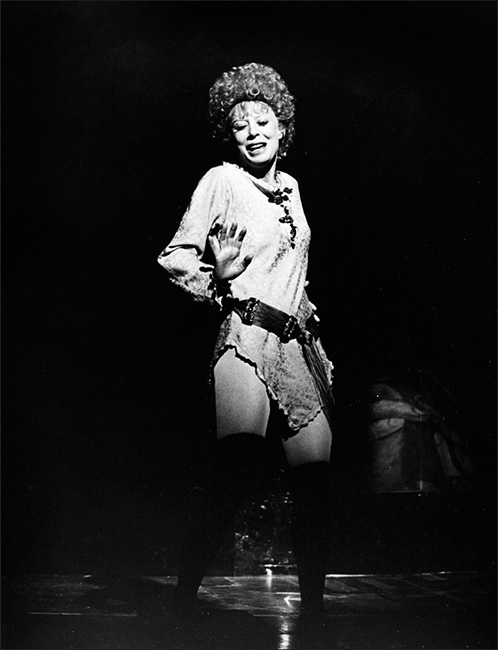
First, a classic shot of Gwen Verdon in her title song, Roxie: ambitious yet carefree, the complete sociopath. Her costume (by Patricia Zipprodt) typifies the mixture of the realistic and the fantastical in Bob Fosses musical-comedy version of life, sharp and clear, with all niceties and incidentals smudged out. All honesty, too. Seek not for justice in Chicago.
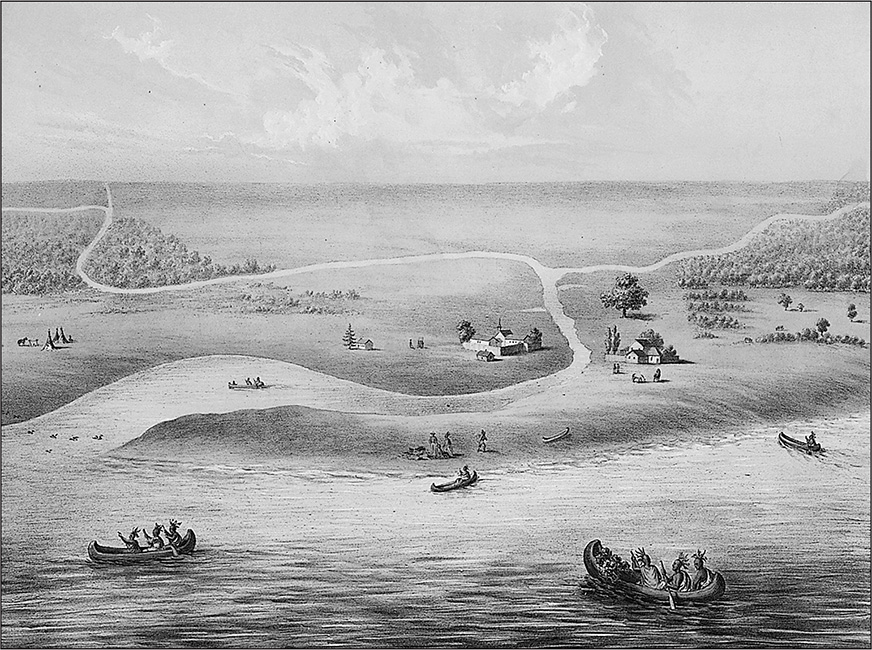
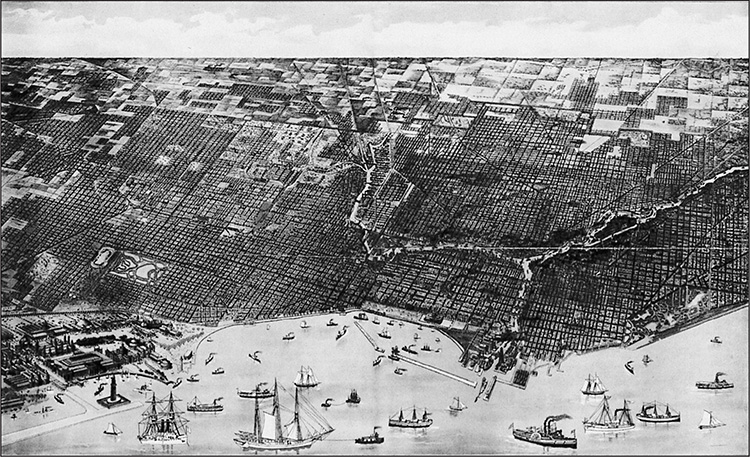
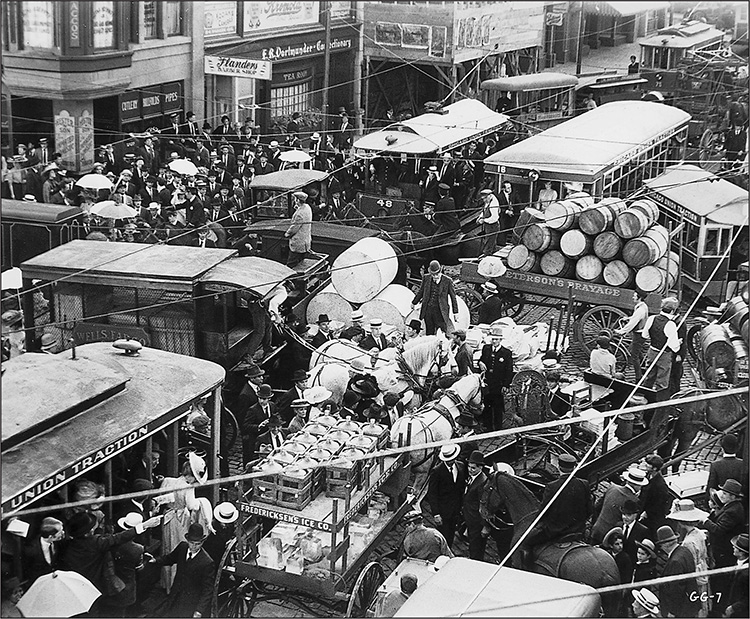
The City
Opposite page, top: Chicago in 1820, little more than Fort Dearborn (at center) and the home of John Kinzie (right), one of the so-called Fathers of Chicago. The south (left) and the north (right) forks of the Chicago River meet and flow into Lake Michigan. Opposite, bottom: Some seventy years later, the place is now the metropolis of the Midwest, with the sand bar removed and a great harbor created. Heavy industrylivestock, lumber, grainis parked amid residential areas, for the business of Chicago is business. The city teems with it, as we see in Norman Jewisons movie Gaily, Gaily (above), with Beau Bridges (standing, left of three big white cylinders) as cub reporter Ben Hecht.
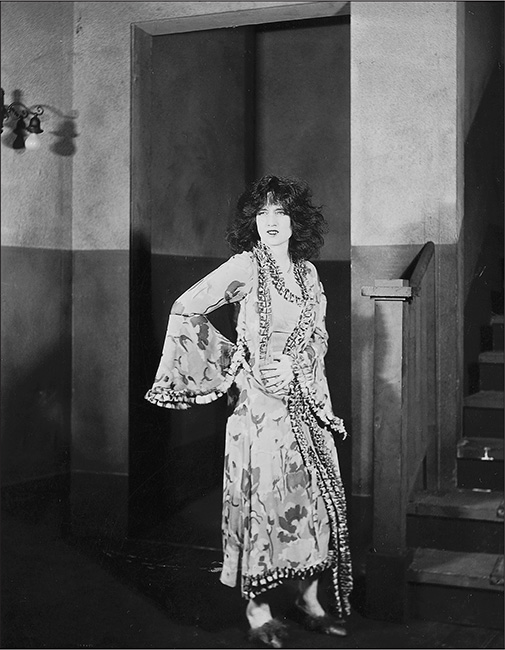
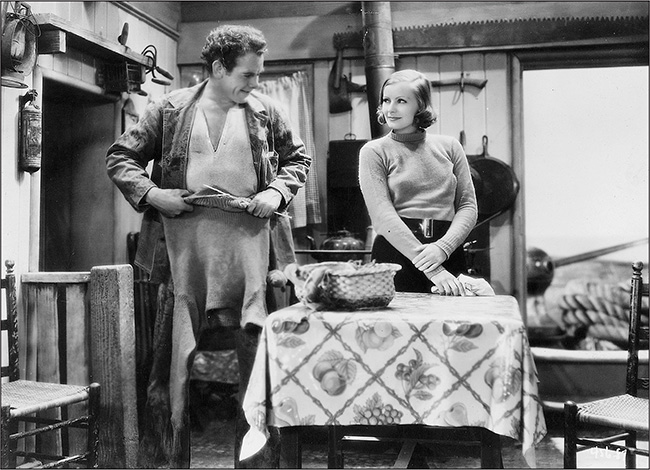
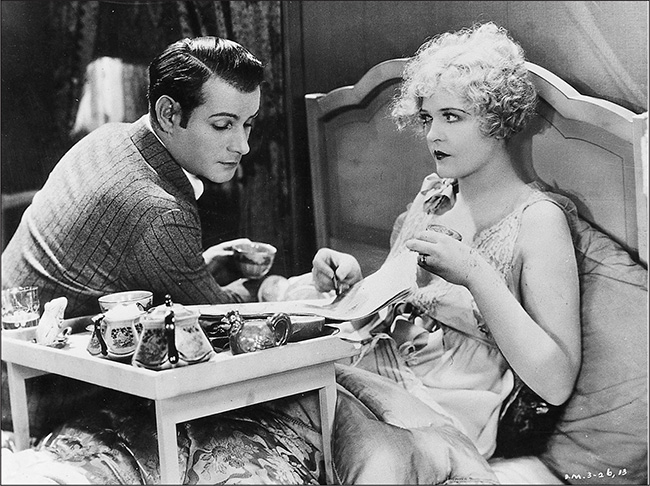
Early Chicagos
Above, the original Roxie, Francine Larrimore, in Maurine Watkins drama that started it all, in 1926, modeling the dress she wears for her murder trial. A nun, Watkins tells us, would envy its chastity. Tradition demanded Roxie have a romance with the available hunk, Jake the reporter, played by Charles Bickford, seen here with Greta Garbo in MGMs Anna Christie (opposite, top), but Watkins wanted no distraction from her sermon on Justice. Opposite, below, Cecil B. DeMilles silent Chicago, in 1927, gave Roxie a marriage. But even breakfast in bed, lovingly prepared by Amos (Victor Varconi), cant soothe impatient, suspicious Roxie (Phyllis Haver).
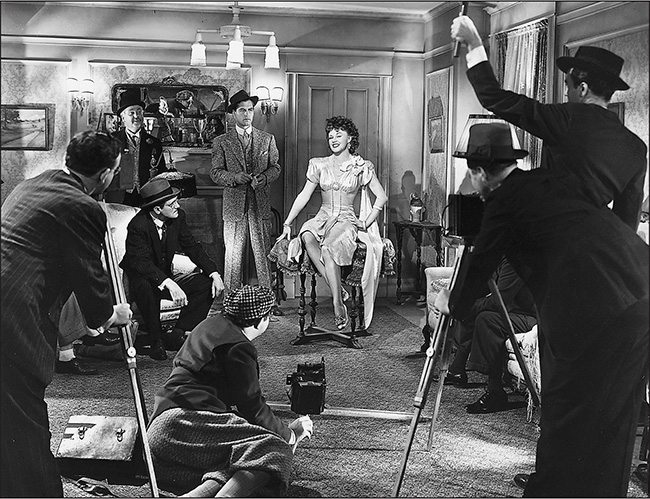
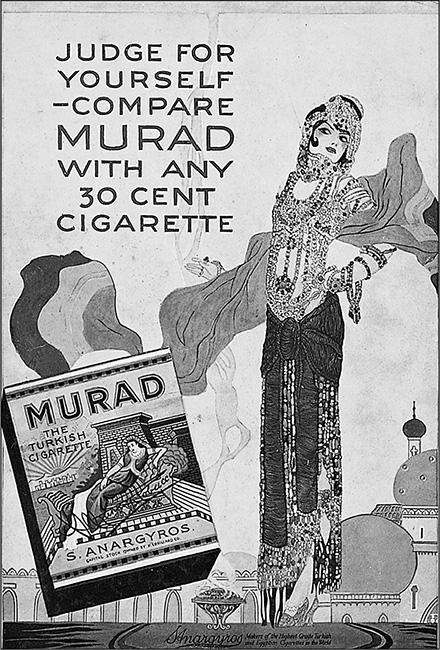
The Talkie Chicago
Above, Ginger Rogers poses for cheesecake, with Nigel Bruce (her agent) and George Montgomery (her future boy friend) at left and Phil Silvers (in beret) on the floor. Its twenties salesmanship, as with the ad at right: hyping tobacco but showing what was known as it.
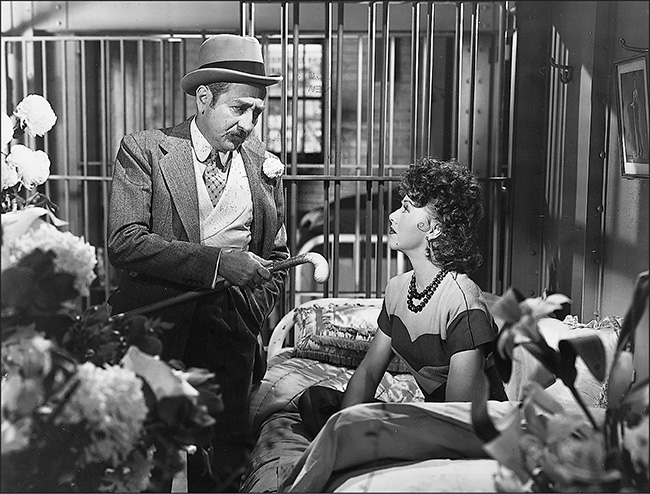
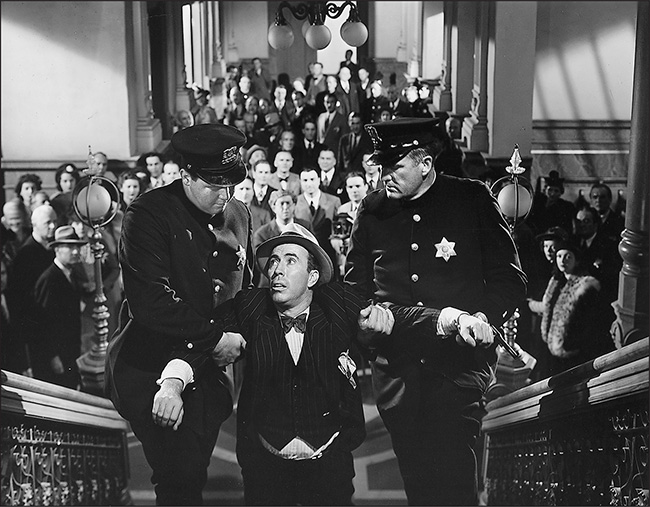
Above, lawyer Adolphe Menjou advises his client, now in jail. But in this version, shes innocent; so who dunnit? Below, the cops collar Amos (George Chandler) as press and public look on. Is he the guilty party?
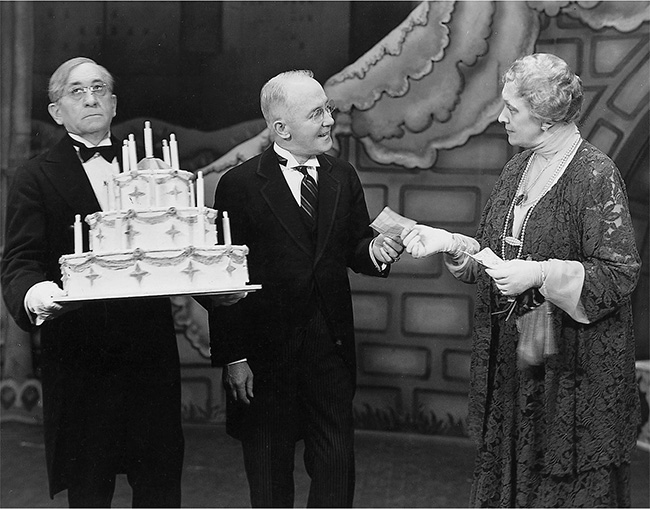
Musical Satires Before Chicago
Above, Id Rather Be Right (1937) was the first to concentrate on spoofing a sitting administration, putting onstage the president himself, FDR (George M. Cohan, center). His mother (Marie Louise Dana) hands him a friends traffic ticket she wants fixed, and FDRs Republican presidential opponent in 1936, Alfred Landon (Joseph Allen), is now the Roosevelt family butler, carrying a cake for FDRs birthday ball. Mrs. Roosevelt is a doting mother, as when she meets the shows sweethearts:

